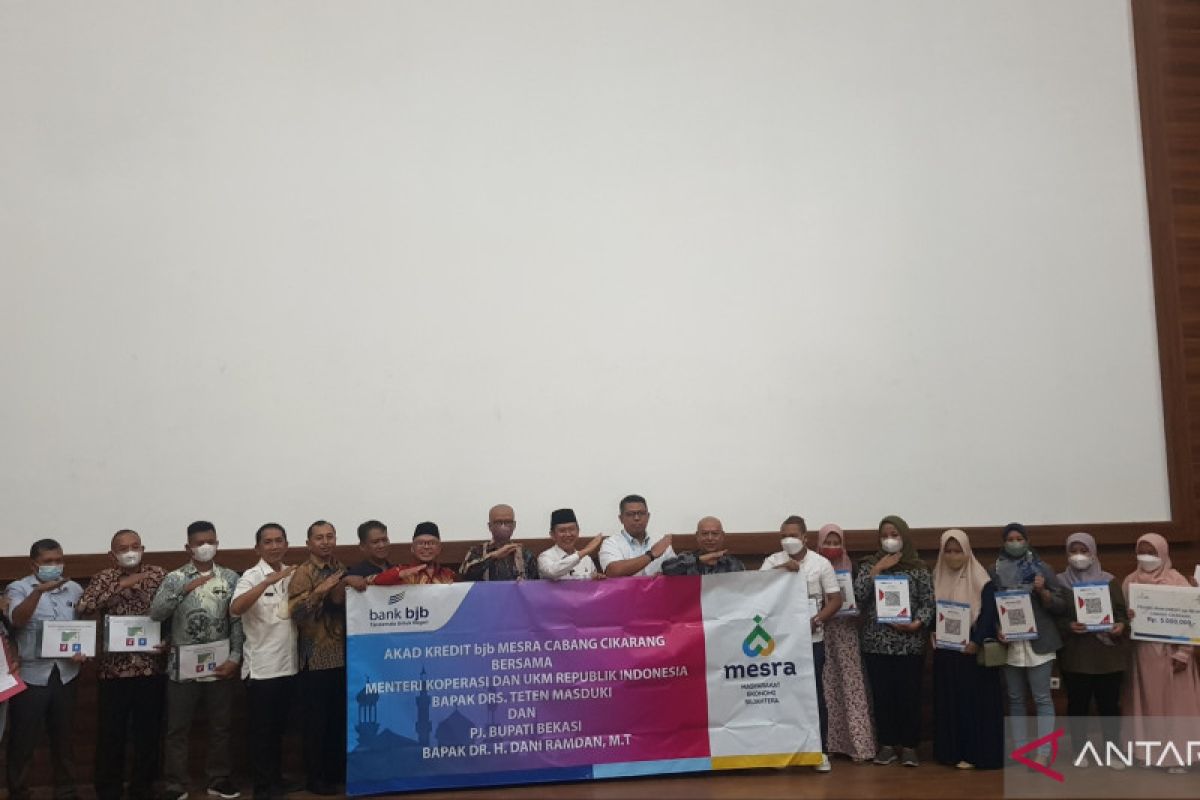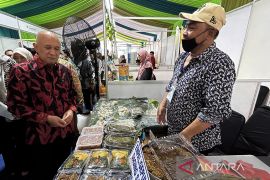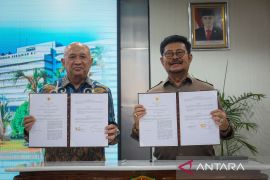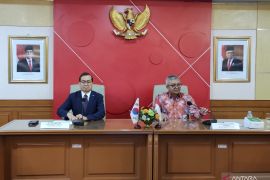Deputy for Micro Business at the Cooperatives and SMEs Ministry Yulius MA stated that the issuance of a business identification number was part of the efforts to assist small businesses in transforming their informal businesses to formal.
“Our target is for one million MSME players in Indonesia to obtain a business identification number, so that their business will be better by complying with regulations,” he noted in Bekasi District on Wednesday.
Yulius highlighted that micro-enterprises contributed extensively to the national economy, given the dominance of these businesses that reached 99 percent despite only 60 percent making it to the government’s digital marketplace.
The deputy said that the initiative, in which business identification numbers were granted to one thousand business players, who were members of the chicken noodle and meatball traders association (Papmiso), was part of the ministry’s main target to open market access for MSME products.
“We target that MSME product access can be expanded through integrated digital catalog shopping from upstream to downstream to push towards the largest digital MSMEs in Asia," Yulius remarked.
He also aimed at strengthening the MSMEs' position in the production chain as well as optimizing low-cost financing for small business actors and cooperatives to encourage an increase in national exports, from the current one capped at 14 percent.
Head of Papmiso Indonesia Bambang Hariyanto commended the central and regional governments for facilitating one thousand of their members with the business identification number, halal certificates, as well as social security membership.
"The state is here to provide facilities for people (from the smallest strata of society). Hopefully, all meatball traders, particularly in the Greater Jakarta area, (would be benefited). Meatball traders are (in a better position) now," he stated.
Acting Head of Bekasi District Dani Ramdan said the regional government supported small business actors through several programs, such as loans, which included that for houses.
Related news: Revocation of permits proves President has heard people's grievances
"House loans with only six-percent interest, while BJB Mesra (loans from BJB bank for micro enterprises) provides loans with zero-percent interest or no interest for a maximum loan ceiling of Rp5 million," he elaborated.
Ramdan believes this was a turning point for the revival of the regional economy affected by the pandemic. Through the initiative, small business actors had their business formalized, as per the mandate of the Job Creation Act.
"The licensing legalization program just by bringing an ID card will certainly help them in developing their business, for example, from using carts and motorbikes, to opening shops and restaurants," he added.
The Bekasi district government also provided business assistance for 4,342 micro business actors amounting to Rp1.2 million for each, facilitated with halal certificates gradually, and held exhibitions and training for small business actors.
"We also provide free delivery subsidies for buying and selling transactions for MSME actors through the online application Bebeli in the social protection program in response to the policy of fuel subsidies diversion. These policies are expected to be able to increase MSME businesses to at least become host in their own country," he concluded.
Related news: Revocation of 2,078 unproductive mining permits starts on Jan 10
Translator: Pradita K S, Mecca Yumna
Editor: Rahmad Nasution
Copyright © ANTARA 2022












